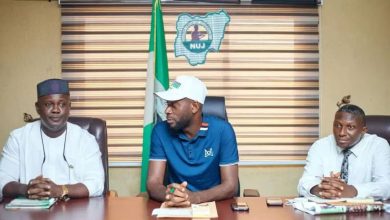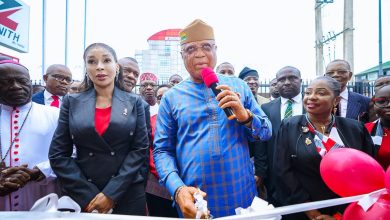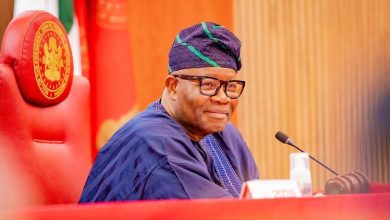VOX POP ON DEMOCRACY DAY

On October 1, 1960 Nigeria gained political independence from British Colonial Rule. Few years after, the Nigerian State fell into military dictatorship for about 33 years (July 1966 – May 1999), with a brief civilian rule from 1979-1983. However, the military exited the political stage for the return to full democratic governance on May 29, 1999.
So for 26 years of uninterrupted civil rule, how has the country vis-a-vis Akwa Ibom State fared in governance?
Crystal Express reached out to citizens for their opinions on the state of affairs in Nigeria and Akwa Ibom as presented in this Vox Pop.
Drive For Development Took Broader And More People-Oriented Form Upon Return Of Democracy In 1999
Those of us who were already established in Uyo by 1987 would recall the joy and high hopes that filled the air when on September 23 of that year the announcement of the creation of Akwa Ibom was made by the then President Ibrahim Babangida.
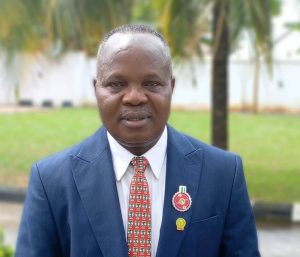
Since then there has been a sustained drive towards the development of the state and her people. Even those of us who are unrepentant critics of military rules would admit that even the military administrators and governors starting from Tunde Ogbeha, Godwin Abbe, Idongesit Nkanga, Yakubu Bako, Joseph Adewusi to John Ebiye, took their turns to lay the foundation for the development of the state.
It could be recalled that government activities started in rented apartments. The Idongesit Nkanga Secretariat and a number of other edifices were constructed during the military regime.
The drive for development took a broader and more people-oriented form upon the return of democracy. It would also be recalled that even in the diarchy (with the federal military and state civilian administrations) with Obong Akpan Isemin as governor, governance started with broader consultations and participation. That was when some of us were members of the state legislature.
On full return to democratic rule in 1999, government activities became more robust, participation and call for accountability became more widespread. Agitations and threats to oil production became palpable in most Niger Delta states.
Characteristically, governance became more structured with the three arms of government exercising their independence albeit collaboratively.
From the administration of Obong Victor Attah to Godswill Akpabio, Udom Emmanuel to the present Umo Bassey Eno, we have witnessed transformations in infrastructure and human capital development.
In spite of our hitherto minority status, we have lately made appreciable presence in the regional and national polity. The state is relatively peaceful. With the good roads network, aviation, a stadium of international standard, golf facilities and overall hospitality, Akwa Ibom can be counted among the major destination points in the country.
Where have we not done enough?
Let me start with a professional bias. I envision a geometrical population growth in the state. Government should step up the employment of medical and health workers, sponsor most of them for specialist training to come back and transform such facilities as Ibom Specialist Hospital, other secondary health facilities that are currently understaffed and the proposed Ibom Medical Village.
Government should also assist the private sector to thrive by facilitating access to capital and general ease of doing business.
I congratulate the governor and the entire people of our great state on this Democracy Day.
Dr Emmanuel Akpanobong
Chairman, Ibibio Elders Forum
For Akwa Ibom State, The Future Is Beginning
With the advent of the Fourth Republic in Nigeria and within the period 1999 to 2025, Akwa Ibom State has witnessed remarkable political stability, socio-economic progress, infrastructural renaissance and assured future for the people. Politically, the Peoples Democratic Party (PDP) had dominated the space under four governance regimes with each running with unique philosophical and developmental tone and commendable progressive impacts.
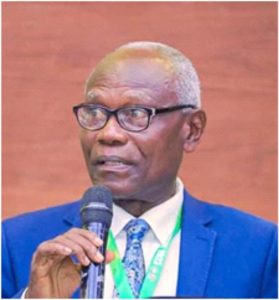
His Excellency, Arc. (Obong) Victor Attah with his blueprint “Come Let Us Build Together”, started the drive from 1999 to 2007, setting the intellectual and practical futuristic development model tone for Akwa Ibom. He advocated for resource equity and true federalism for Nigeria of which Akwa Ibom State is a sub-national unit.
Many projects such as the independent power plant, the airport, initiative on a deep seaport project, the ICT-cum-science park project, the state university, and roads infrastructure stand out to his credit. He achieved for the state a long term vision, sustainable socio-economic and infrastructural foundation as well as national and international visibility of the state and the people.
Within the period 2007 to 2015, His Excellency, Chief (Dr) Godswill Obot Akpabio accelerated the visibility of Akwa Ibom State with the developmental mantra of “Uncommon Transformation”, where massive infrastructure, particularly roads, flyovers, international stadium, continuation of the airport project, etc, stand out clearly to blaze his trail. His philosophical tone was bold, visible and promotional and many people got uncommon economic springboard to excel and be up-lifted.
His Excellency, Deacon Udom Gabriel Emmanuel who served from 2015 to 2023, brought in a technocratic slant to governance and by his “DAKKADA” philosophy and the “Completion Agenda” mantra, emphasis was placed on industrialization, private sector development and economic growth. He was also bold in pursuing infrastructural transformation in roads and the aviation industry with the advent and successful floating of Ibom Air, which has developed as a unique brand in the Nigerian aviation industry.
The fourth and current democratic stage is piloted by His Excellency, Pastor Umo Bassey Eno (PhD) who started in 2023 with a comprehensive developmental philosophy under the capsule “A.R.I.S.E. Agenda”. His leadership and development model is laced with compassionate governance, appropriately tagged the “Golden Era”.
The state is steadily moving on the transformative path guided by the A.R.I.S.E. Agenda which is a comprehensive strategic action plan encompassing agricultural revolution, rural development, infrastructural maintenance and advancement, security management and educational advancement. It is highly expected that with the bold progressive alignment of Akwa Ibom State with the national government of renewed hope, more gains will be achieved to consolidate the achievements of his forebears in the governance of Akwa Ibom State.
It is imperative that we take note on the numerous challenges and gaps in the political, social and economic development of the state. The gaps which are not necessarily localized include weak political institutions and low political inclusion, total dependence on crude oil economy, weak and underdeveloped industrial base, massive ill-organized informal sector, huge youth unemployment-cum-underemployment, wide infrastructural deficit in all sectors, as well as the existence of wide gaps in skills and entrepreneurship among the youth, etc.
However, with the reasonable progress so far and the state’s endowed peaceful political transformations, and endowment in natural and human resources, the future of Akwa Ibom State, therefore, is predicted to witness robust diversified economy, sustainable infrastructural growth, enhanced social and economic services and overall well-being of the citizenry.
Let us all celebrate the progressive success of democracy in Nigeria and Akwa Ibom State within these 26 years with renewed hope, vision for shared prosperity and determination to ARISE in all fronts of development and progress. Therefore, for Akwa Ibom State, the future is beginning.
Professor Trenchard Okon Ibia; RSS, FSSSN
Former Member, Akwa Ibom State Executive Council
There’s Need For Reforms To Get Nigeria On Track
Looking at Nigeria’s democracy at 26, I feel bad because what we have seen today is not what we really anticipated.
In 1999, when Nigeria adopted a democratic system of governance, there was a renewed hope and agenda but along the line, things began to depreciate against expectations.

This is sad, a serious concern to us as concerned citizens, and a wake up call for every lover of democracy in Nigeria.
It is time to make an amends, if we are to get it right. It is not late to reinvent Nigeria in line with popular opinion.
As we mark this year’s Democracy Day, and with the political dramas unfolding on daily basis, coupled with the socio-economic crisis in our country, there is an urgent call on our government at all levels and their institutions to be transparent, responsive, responsible and accountable to the people for peace to reign and progress to be made.
We don’t have any other country apart from Nigeria, which is our own, therefore, all hands must be on deck to rebuild it desirably.
Happy 26th Democracy Day, Nigerians.
Mr Emmanuel Michael
An Entrepreneur & Political Analyst
A’Ibom Has Made Remarkable Gains In 26 Years Of Uninterrupted Civil Rule In Nigeria Since 1999
As a country, Nigeria gained political independence from British Colonial Rule on October 1, 1960. The Nigerian State is therefore, approaching its 65th birthday on October 1, 2025. Of the 65 years of its existence as an independent political entity and nation state, Nigeria has been ruled and administered under military dictatorship by members of the Nigerian Armed Forces for an uninterrupted total of 33 years (July 1966 – May 1999), with only a short-lived interregnum of civilian rule from 1979-1983. In each of the respective circumstances, the military regimes (eight of them in all) came to power through forced takeover of government via coup d’etat. Fortunately, there has been no military coup in Nigeria since May 29, 1999, when the Fourth Republic commenced.
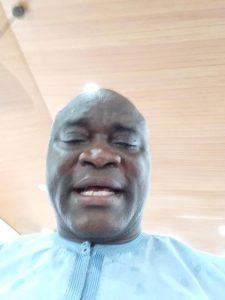
Akwa Ibom State was created by the then self-styled Military President of Nigeria, General Ibrahim Badamasi Babangida, on September 23, 1987 as the 21st of the 36 states of Nigeria. Like the rest of the states of the country, Akwa Ibom State was ruled and administered by military administrators appointed by the military head of government at the centre. Beginning from Brigadier-General Tunde Ogbeha, the pioneer military administrator, the state had been run by six military men between its creation in September 1987 and the birth of the Fourth Republic in May 1999. As the other states, Akwa Ibom has enjoyed 26 years of uninterrupted civil (democratic) rule since 1999.
In these 26 years, four eminent sons of the state have been successively elected to the Office of Governor. The four men – Victor Bassey Attah (May 1999 to May 2007), Godswill Obot Akpabio (May 2007 to May 2015), Udom Gabriel Emmanuel (May 2015 to May 2023) and Umo Bassey Eno (May 2023 to date) – have each made important contributions to the progress, growth and development of Akwa Ibom State. Great strides have been recorded in virtually all spheres – ranging from advancements in infrastructure, education, health facilities, housing and social life, through to free speech and press freedom. The state-of-the-art Government House in Uyo is about the only one of its kind in Nigeria.
In the area of sports, Akwa Ibom State is now a choice destination and venue for international football engagements, courtesy of the Godswill Akpabio International Statdium in Uyo. Most critically, the prevailing democratic dispensation has come with opportunity for the people to be heard and seen in national affairs, through their elected representatives. For the first time in the 65 years life of Nigeria, an AKwa Ibom son, His Excellency, Senator Godswill Akpabio, GCON, is the President of the Senate (and Third Citizen) of the Federal Republic of Nigeria.
Just last week Friday, June 6, 2025, Akwa Ibom State witnessed an epoch-making political development – the official defection of His Excellency, Pastor Umo Bassey Eno, PhD, the governor of the state from his former political party, the Peoples Democratic Party (PDP), to the ruling All Progressives Congress (APC). As it is, Akwa Ibom State is now directly connected and aligned with the ruling APC Federal Administration.
Given the solidification of the political synergy between the governor and the President of the Senate which the defection of the former has brought, the state stands to gain a lot more benefits from the Federal Government of President Bola Ahmed Tinubu, GCFR. No political move could be better for Akwa Ibom State at this time.
Indisputably, 37-year old Akwa Ibom State has made remarkable gains in the 26 years of uninterrupted civil rule in Nigeria since 1999.
However, there are some significant challenges, pointing to the need for greater official actions to better the socio-economic conditions of the people. Felt physical development should normally translate to and reflect in the living conditions of the people through improvements in the human development index of a society.
The prevailing food challenge is particularly disturbing. Akwa Ibom State is excessively dependent on supplies from outside its bounds for its food needs, including the staple foodstuffs.
Amongst various other needs, going forward, the state will have to consciously pay greater attention to policies and measures purposely directed at improving its food security through enhanced food sovereignty. Every serious society strives to produce the food it needs.
Looking ahead, we see a very bright future for Akwa Ibom State in the present, near future and distant future political dispensations in Nigeria.
Happy Democracy Day 2025 to all Akwa Ibom people!
Prof. Etok Ekanem
Uyo, Akwa Ibom State
Nigeria Needs Committed Leaders And People In Positions Of Authority To Champion Our Revival And Development
Yes, it is the 26th year of uninterrupted civil governance, and in my view, Nigeria is not a failed state, though it has not really delivered democracy for its citizens. The reason this is so is failure to integrate in its governance democratic principles which guarantee the public’s right to know, participate in decision-making and access justice. Here, I will call on the three arms of the government – the legislature, the executive and the judiciary – to sit up.
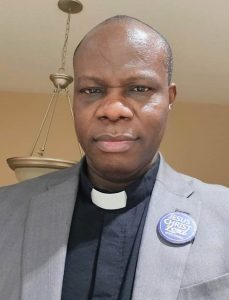
At this point, for us to get it right in the country, the nation deserves righteous, God-fearing and patriotic leaders, as well as technocrats in positions of authority, and not political jobbers.
For our democracy to work, we need more committed people in positions of authority in Nigeria.
Our president, governors and local government chairmen should think right when it comes to appointment. They should not compensate people with political offices but rather, assign those who will truly do the job and deliver dividends of democracy for the people.
When I was reflecting on the state of our democracy, I realized that our pathetic situations in this country, Nigeria, persist because we are yet to have many committed leaders and people in positions of authority. Many who are in positions now are not dedicated, selfless and committed to making things better, but God will help us as people of this our great nation.
I wish everyone of us a happy 26th Democracy Day celebration.
Rev. Dr Daniel Asian
Clergyman
The Stronger The Institutions Of Democracy, The Better Democracy Thrives And Rights Protected
From my in-depth assessment so far, for 26 years now, Nigeria’s democracy has remained crippled due to weak governmental institutions.
These institutions are expected to pay complete allegiance to the people, constitution and not the government in power.
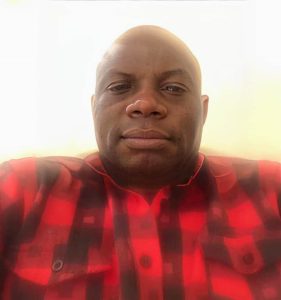
For example, the police, military and electoral commission are expected to be independent bodies devoid of government interference and through their independence, democracy thrives and rights protected, because the stronger the institutions of democracy, the better. But the reverse is almost the case.
For Nigeria to get it right, the issue of unsatisfactory leadership, corruption and political mistrust which have weakened our democracy, as well, worst economic crisis occasioned by several government policies must be addressed.
Akparawa John Essien
Public Affairs Commentator
Civil Governance Has Impacted On A’Ibom People In Great Measures
Democracy in Akwa Ibom State and in Nigeria as a whole has evolved from nascence to adulthood and is still growing. It is not without its emerging challenges and teething problems that are always encountered in every process of evolving. Akwa Ibom State has its own share of challenges, ranging from insecurity, kidnapping, killing, restiveness, occultism, oil theft, vandalism of critical installations, corruption, and political rivalries during election years.
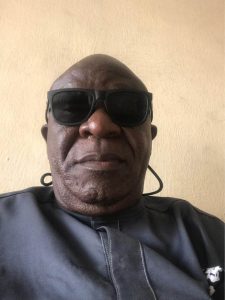
During the period under review, the transition of civil governance and leadership in the State has been consistent, from Arc. Obong Attah to Chief Godwin Obot Akpabio, Deacon Emmanuel Udom, and now Pastor Umo Eno. They have governed with their various blueprints to deliver the dividends of democracy to the people. Governor Attah envisioned his political creed as Resource Control, Governor Akpabio ran with Uncommon Transformation, Governor Udom settled for Dakkada, and Governor Umo Eno is now using the Arise Agenda. All of these creeds have brought development to the State in one way or another.
In 26 years of democracy, the State has been transformed impressively in terms of infrastructural development, including the construction of flyovers and a good network of roads that traverse the state capital and local governments, enhancing better living for the people and business growth. Other sectors of the state economy have enjoyed a positive impact, such as health, education, tourism and hospitality, agriculture, commerce, aviation, and the general welfare of civil servants. However, industries have remained moribund, except for Champion Brewery, which is producing below its installed capacity, while Ibom Power is generating at a low ebb.
The high level of insecurity and cultist activities has been greatly minimized, bringing peace to lives and security to properties and businesses. The State is also growing politically, with parliamentarians making laws that are people-friendly. Politics in the state is partisan, where the ruling party wins all elections, especially at the local government and ward levels. There are still pockets of political thuggery during elections, where lives and properties are destroyed.
So far, so good, civil governance in the state over 26 years of democracy has had a significant impact on the people, considering the enormous Federal Government Monthly Allocation to the State and its Internal Generated Revenue. However, to strategically turn the State into viable business hubs, I suggest that the government should have the political willpower to go back to the drawing board to reactivate and implement the construction of the Science Park, which is a compendium for revolutionizing digital components and sciences in the state and Nigeria as a whole.
Another critical infrastructure to push forward the state’s economy is the establishment of the Ibom Deep Seaport. This facility will be the emerging gateway to West and Central Africa’s maritime prosperity. It will bring a chain of businesses across the coastal line of the state and create employment opportunities.
Finally, I posit that democracy is better than a dictatorial government, and the people of Akwa Ibom should sustain civil governance to enjoy more dividends of democracy. I congratulate the State on celebrating 26 years of uninterrupted civil governance.
Chief Henry A. Obot, a Businessman
Governance Via Democracy Is The Most Humane And Preferable Genre Of Govt.
First of all, it is an irony that “Democracy Day” was fixed for June 12, the very unfortunate and tragic day in Nigeria’s political history, when a Presidential election result adjudged to be the fairest, and a true mandate-representation of Nigeria’s cross- ethnic mix, for once, yet was jinxed.
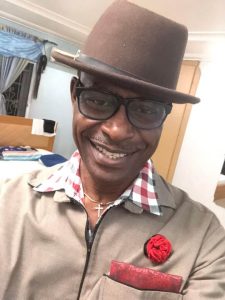
Since that national jeopardy befell the country, a palpable spell of disaster often tends to sabotage many an event wittingly or unwittingly planned for June 12. It would appear, therefore, that choosing a fateful day in which saboteurs succeeded in hijacking the common mandate of a people with impunity…was not quite a critical and pro-positive one. Worse still, the celebrations of democracy on such a jinxed canvas, is tantamount to invocations of inanities and a re-enactment of a lunatic and doomed spirit of democracy back to prowl across the vistas of our national psyche. This might have been responsible for the scenarios playing out in successive regimes of our jaundiced political experiences.
The so-called “26 years of uninterrupted governance” sounds skewed in logic when weighed against the avalanche of malpractices which often characterised the conducts of (post-June 12, 1999) elections; the lack of confidence Nigerians have had to express over the practice of the rule of law, with particular reference to the judiciary, especially the election tribunals; the insurgences that have revealed the lapses in the bravado of our armed forces; and arising from there, the seeming expansionist spates of brazen insurgent attacks and threats across Nigeria’s threshold, in about suffocating abandon; the apparent decay in our educational systems, health systems, transport systems; and the general incompetence and malfunctioning infrastructure that has given Nigeria a re-Christened name as a country “where nothing works!”etc.
Just how applicable is the lofty adjective “uninterrupted” to the situation of a people buffeted by hunger in an economy with all the indices of a failed state stirring at us in the face, without a corresponding brass-tack (tackling) of the issues, whether in a wholesome or piecemeal onslaught, to alleviate the obvious sufferings of the people? In my humble estimation, the unemployment rate in our democratic Nigeria, made worse by the proliferation of newly approved universities – federal, state and private – while existing ones are wobbling on their feet; the new universities which churn out graduands in droves, without absorbing outlets for their employment, show mis-planning or no planning at all. Far worse is dishonest governance whose stooges sloganeer the constructions of industries to catapult a state from its post-colonial civil service status to an industrialised one. Yet sadly, as the chips are down and tenures wane to a halt, the startling realities of the campaigns of calumny and sloganeering of the unavailable, rather treacherously dawns on humanity. Perhaps apart from full-blown war, and God will not permit this country to plunge into war with another country of any size or might; for if it has taken our armed forces these many years to bring down the hegemony of Boko Haram – a mere insurgent group…? Then God must please keep this nation away from any or all unintelligible provocations that could dovetail to war with another country!
Yes, apart from real war scenarios, very many nagging problems have constituted gross interruptions in our nascent democracy. The above in the narrative being a teeny-weeny bit.
Be that as it may, governance via democracy, is a most humane and preferable genre of government. When correctly and constructively harnessed or conducted, the benefits in human and state empowerment can form a steady index of growth in accordance with successive regimes. Each new regime would be trying to outsmart the incumbent in initiatives that translate to the general good of all, and the state’s development in a true democracy. The ones that the state is dotted with abandoned or incomplete projects of previous administrations which a succeeding regime would not touch, smacks of democracy gone bunkers at least, or shows democracy as regime-oriented rather than people-oriented at most.
In comparative terms, Akwa Ibom State democracy has printable benefits to show for its years. The most striking being the construction of roads network. This has helped promote all the access-related values of the society: socio-economic; histori-cultural; trado-religious, you name them, in the lives of the people. These however fall short of the ideal or even the real that should have been when you attempt to match the monthly allocation – both from federal and internally-generated, accrued to the state. Such calculations usually reveal that the people’s money for their democratic blessings, nay, people’s wellbeing, had, somehow, through the monster of corruption, been cordoned off by a few, for private aggrandisements at the expense of the masses. Corruption has nearly become an approved routine, occasioned by the weak structures in the Nigeria system, which could have challenged it, for example, the law. Very unfortunately, corruption has factored itself into the fabric of the society, constituting a most damaging bane of democratic fabrics. Even more worrisome is the apparent weakness or negligent of the law to checkmate its advances, leaving a near-certainty or predictability of the future continuum of unsuccessful democracies. Except a revolution somewhat were carried out to rip democracy off the truncating grips of corruption, democracy would continue to be preferred in its theories of comely and lofty potentials but lacking quality expressions in practical terms, for the benefit of the people.
Long live Democracy!
Long live the Federal Republic of Nigeria!
Long live Akwa Ibom State!!
Long live the Resilient Force of the Nigerian Masses!!!
Prof Effiong Johnson
University of Uyo
Still Strutting 26 Years After
Democracy has various definitions. One source sees it as a system of government in which the people have the power to make decisions, through voting. Another considers it as a system where power is held by the people either directly or through elected representatives. But I appreciate more the aspect of the dictionary meaning which sees it as “the practice or principles of social equality”.
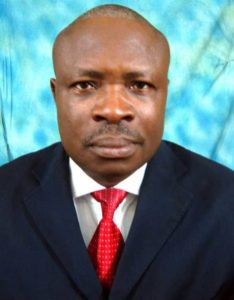
So, if we go with any of the definitions above, how has Akwa Ibom State fared since democratic rule returned to the country in 1999 – 26 years ago? For me, I would say not badly.
The state was created to meet soldiers in power – people who command obedience through coercion. Though there was a brief (17 months) democratic interregnum between January 2, 1992 and November 18, 1993, the people had been under military administrators for most of 16 years since 1983 and could be said to have been under bondage.
Therefore, the first impact of democracy for Akwa Ibom people since 1999 is that they have been freed from bondage. And that sense of freedom is the greatest benefit.
As a system of government where the people participate, democracy in Akwa Ibom State has progressed excellently in that there have been many avenues for more people to take part in decision-making.
The creation of seven additional local government areas since 1999, when this Fourth Republic was born, has brought more political wards into existence which further took democracy to the people at the grassroots. Although their representatives (councillors) in the 329 wards that make up the 31 local government areas or the 26 members of the House of Assembly do not consult them before speaking on their behalf, the people still feel a sense of belonging.
One other aspect of progress is the fact that since 1999, participants in the various administrations, from Obong Victor Attah through Chief Godswill Akpabio, Udom Emmanuel and currently, Pastor Umo Eno – the governors, House of Assembly members, councillors –have emerged through what is always considered as elections. The introduction of “constituency briefing” from the era of the current Senate president, Distinguish Senator Godswill Akpabio in 2013, where the governor goes to each of the 10 federal constituencies to seek the views of the constituents has further made democracy participatory in the state.
I give kudos to Chief Akpabio for that foresight. In the same vein, I can say that democracy has also allowed the people of Akwa Ibom to engage in freedom of expression and civic discussions, criticizing the leaders openly as a way of bringing out the best. That would be “severely dealt with” under the military rule. I can go on and on. Opinions will point to the massive infrastructural development the state has witnessed in the last 26 years as evidence of progress of democracy. But that is not truly so, as military governments still provide all those “dividends”.
The challenges? The greatest challenge, in my opinion, is that after 26, the method of choosing our leaders or representatives is still being controlled by few individuals. The system should find a way to allow the people to freely decide on those who should lead them. The practice of imposing of candidates on the people should be discouraged. Also, political leaders should ensure that all sections in an identified democratic unit are allowed to produce the representatives. This will give a greater sense of belonging to everyone in the “community”. And this will further bring lasting peace, leading to more progress of the state.
In the last two years, the leadership style of His Excellency, Pastor Umo Eno has been very distinct. His policy of inclusiveness has brought complete peace to the state. Until his progressive movement to the All Progressives Congress (APC) a few days ago, there was hardly any of his actions that could stand him out as holding the mandate of the Peoples Democratic Party. How I wish he had not asked his appointees to resign for not following him to the APC. Although it is yet to be seen, if, despite his assurances, he will take everyone along irrespective of party affiliation, as an APC governor, he deserves my praises.
Let me conclude that considering where we were in 1999, where we are today, 2025, and where we could have been in 26 years – a period long enough for a woman to conclude child-bearing, I would say that we are still strutting.
Happy Democracy Day, Akwa Ibom people!
Ikpong Essien-Udom
Chairman emeritus
NUJ, Akwa Ibom State Council


